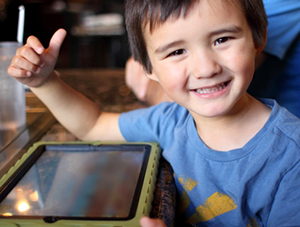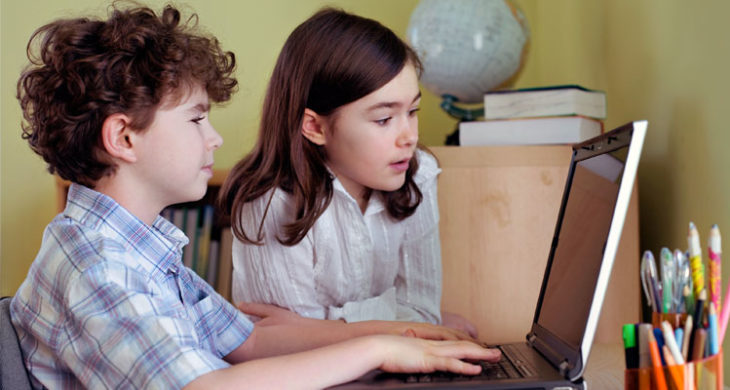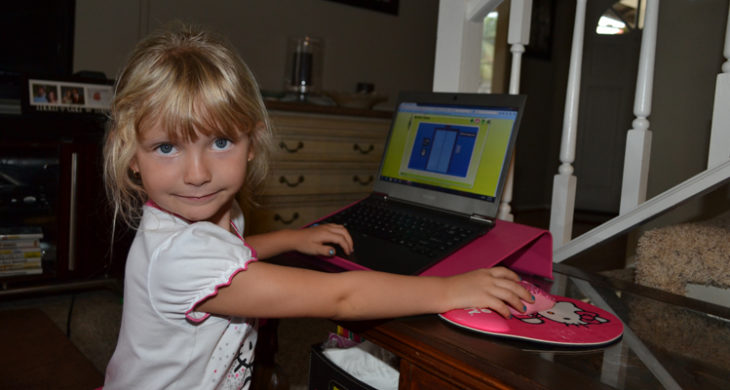There comes a day when every child must leave the nest, so to speak, and take a monumental first step toward independence. For many children, part of taking that first step involves crossing the threshold of their kindergarten classroom for the first time.
The countdown to kindergarten is an emotional time for parents and children. Feelings of anxiety, fear, trepidation, and sadness compete with feelings of excitement, curiosity, pride, and enthusiasm. To ensure that positive emotions win out in the long run, it’s essential that your child be kindergarten-ready when he steps into that classroom.
Skills Necessary for Kindergarten Readiness
Even if your child is old enough to begin kindergarten, is he ready? Most educators agree that for a child to be successful in kindergarten, he should possess several basic skills. These include being able to:
- Use the restroom independently
- Speak clearly enough to be understood by non-relatives
- Comply with two-step instructions, such as “Please sit down and take out your crayons”
- Sit still and listen for ten consecutive minutes
- Articulate feelings
- Request help when needed
How to Prepare Your Child for Kindergarten
You are your child’s first (and possibly best) teacher. You also have more motivation than anyone to help him transition seamlessly from home or preschool to kindergarten. When you work with your child on skills needed to succeed in kindergarten, you are setting him up to have a positive year that will shape his entire school experience.
While the aforementioned skills are considered non-negotiable prerequisites for kindergarten, there are many other skills that will help your child thrive and develop a love of learning.
- Prepare your child for social success. You already know that helping your child learn to recognize, write, and recite numbers and the alphabet will help him become kindergarten-ready. But don’t overlook the importance of teaching social skills. The more opportunities you arrange for your child to interact with unfamiliar children, the more you’ll be able to instruct him on basics such as taking turns, being polite and friendly, and diffusing conflicts in healthy ways.
- Shatter fear of the unknown. Well before your child’s first day of kindergarten, schedule a tour of his new school. Let him see the classrooms, library, cafeteria, bathrooms, etc. Allow him to play on the playground. Help him to become familiar with his future school in advance so he’ll be able to focus on meeting other kids and listening to his teacher.
- Broaden your child’s horizons. The more your young child experiences the world (plays, museums, aquariums, zoos, parks, restaurants, beaches, mountains, etc.) the more quickly he’ll be able to grasp concepts and skills.
- Play school at home. Spend time on activities your child will experience in kindergarten. Read aloud to him at least a few times per day, from fiction and nonfiction books. Encourage him to practice writing his letters and numbers. Ask him thought-provoking questions throughout the day such as, “It’s raining outside. Do you know where rain comes from?”
- Practice motor skills. In kindergarten, your child will probably use scissors, crayons, and pencils. Help him to master these tools before school begins.
Every Child Is Different
If you’re not convinced that your child is mature enough for kindergarten, you have the right to “redshirt” him for a year, which is an increasingly common decision. You can find compelling arguments both in favor of and against delaying kindergarten. You know your child better than anyone. Sometimes, a child’s birth date isn’t the best indicator of kindergarten readiness.
Another alternative to consider is enrolling your child in an online public school. The option of online kindergarten allows you to continue to work with your child to build up his essential skills without having to keep him out of kindergarten for another year. Visit k12.com for more information about virtual schools.
Try these free online activities to help prepare your child for kindergarten success!
,










